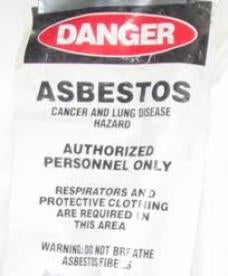On June 28, 2016, the New York Court of Appeals decided the following question: Does a manufacturer have a duty to warn about asbestos-containing parts made by someone else but used with its non-asbestos product? The Court answered, “Sometimes,” under a relatively narrow set of circumstances.
The plaintiff in Dummitt v. Crane Co., a Navy boiler technician from 1960-1977, alleged that he developed mesothelioma from exposure to asbestos insulation used with Crane Co.’s high-temperature steam valves. Crane Co. didn’t make the insulation, and its valves did not contain any asbestos. But at trial, evidence was presented that Crane Co. recommended the use of asbestos insulation with its valves, sold its valves with asbestos insulation already in place, and marketed other manufacturers’ asbestos-containing replacement parts under its own brand. The evidence also was claimed to show that Crane Co.’s high-temperature, high-pressure valves probably needed the asbestos insulation to function at their peak.
The jury found Crane Co. 99 percent liable for the plaintiff’s injuries and awarded a $32 million verdict, which was remitted to $8 million. On appeal, the First Department affirmed.
The Court of Appeals agreed with the lower courts, finding Crane Co. liable for failing to warn customers about the dangers of the asbestos insulation, but articulated a more precise rule: “[T]he manufacturer of a product has a duty to warn of the danger arising from the known and reasonably foreseeable use of its product in combination with a third-party product which, as a matter of design, mechanics or economic necessity, is necessary to enable the manufacturer’s product to function as intended.”
Going forward, therefore, manufacturers should pay attention to the products used in connection with theirs to determine whether they need to issue a warning to consumers.
The Court of Appeals also addressed a second important issue for product liability defendants: whether New York recognizes a “heeding presumption.” A “heeding presumption” allows the jury to presume, without evidence, that a plaintiff would have heeded an adequate warning if one had been provided. Most federal courts have held that there is a heeding presumption under New York law, but most New York state courts have held there is not.
The “heeding presumption” is critical to proximate cause in a duty-to-warn case. A defendant’s failure to provide an adequate warning is not the proximate cause of the plaintiff’s injuries when the plaintiff would not have heeded the warning. Defendants argue that because a plaintiff must prove proximate cause, a presumption is not appropriate.
The Court declined to resolve this dispute, finding that the issue was unpreserved. Nevertheless, it cautioned, “trial courts must continue to ensure that their jury instructions honor the principle that the burden of proving proximate causation, which in a case like this one includes the burden of demonstrating that the injured party would have heeded warnings, falls squarely on plaintiffs.”
There are two important takeaways from this decision: (1) the pool of asbestos defendants in New York may have deepened; and (2) the next asbestos defendant to get an unfavorable trial court ruling on the “heeding presumption” should press the issue at appellate review.


 />i
/>i

